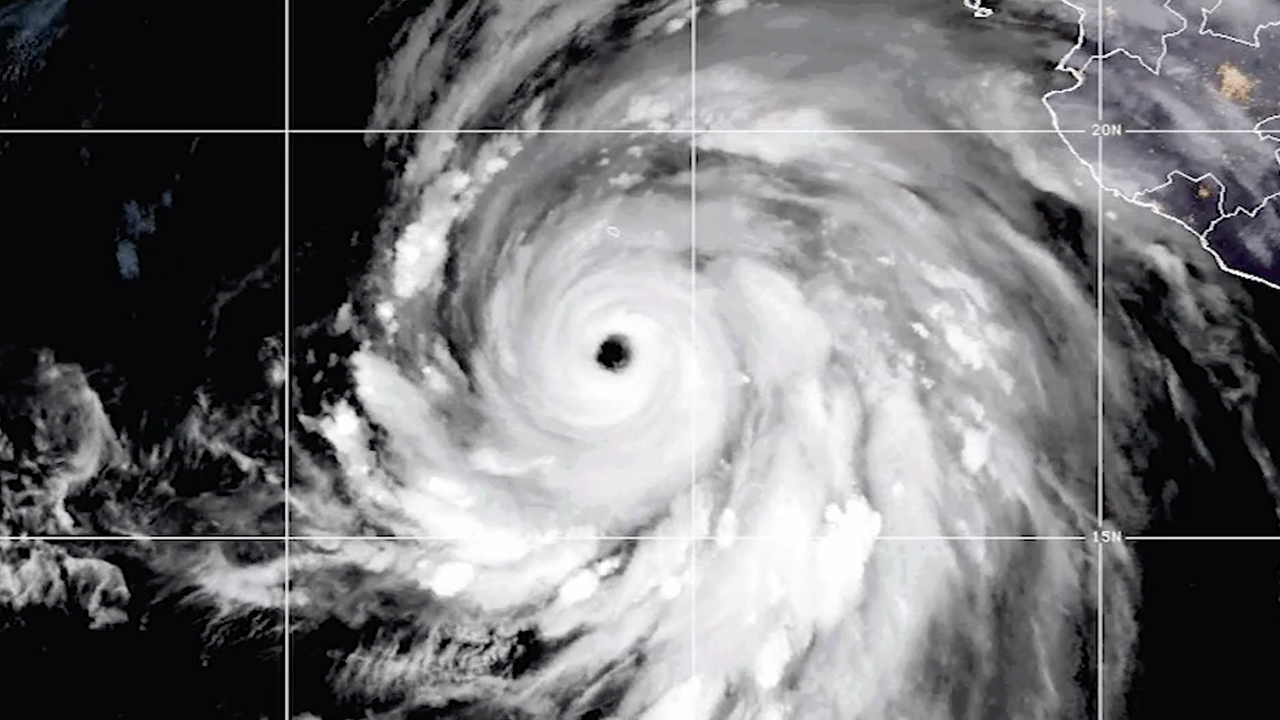
An innocent-looking tropical depression has exploded into the powerful Hurricane Hilary in just two days off the Pacific Coast of Central America and is now headed to Southern California as the first tropical storm to hit the region in more than 80 years.
The GOES-18 weather satellite operated by the U.S. National Oceanic and Atmospheric Administration watched Hillary evolve at rocket speed from a mild tropical depression into a forceful Category 4 hurricane. Packing sustained winds of 145 mph (233 kph), Hillary is moving northward to Baja California where it is expected to make landfall on Sunday (Aug. 20), according to AccuWeather.
Fortunately, by that time, the hurricane will weaken either to Category 1 or to an even weaker tropical storm.
Related: New and improved satellites will help track storms this hurricane season

Nevertheless, the bad weather that Hilary is pushing ahead of itself forced SpaceX to cancel a planned Starlink launch from Vandenberg Space Force Base in California on Friday morning.
"Due to Hurricane Hilary impacting recovery operations in the Pacific, we are standing down from tonight's Falcon 9 launch of @Starlink," SpaceX said in a post on X, formerly known as Twitter. "Next launch opportunity is no earlier than Monday, August 21."
Hilary's arrival will mark the first hurricane or tropical storm landfall in Southern California since 1939, according to AP. Weather forecasters expect the storm's impacts to be significant, with heavy rainfall across the southwestern United States and a subsequent risk of flash floods from San Diego to Las Vegas.
Up to 10 inches (25 centimeters) of rain might fall in southern California and southern Nevada, AP reported.
Although currently away from the coast, Hilary is already bringing strong winds, storm surge and heavy rain to the coastal regions of Mexico.







